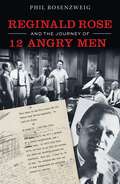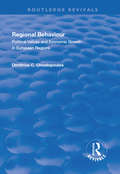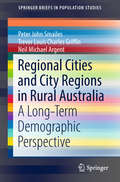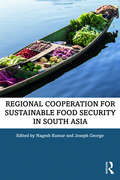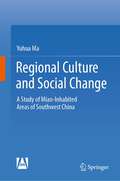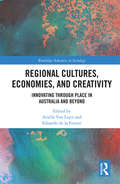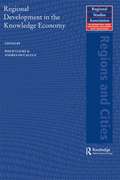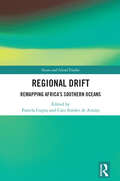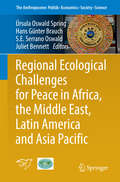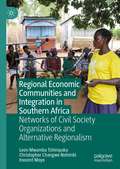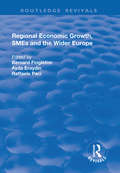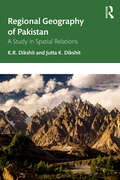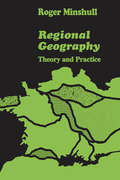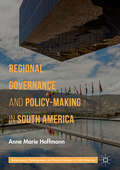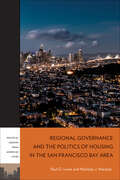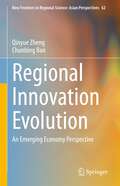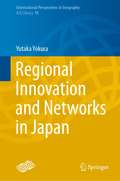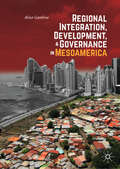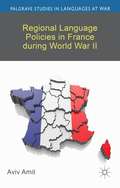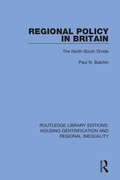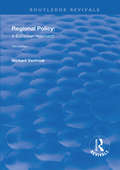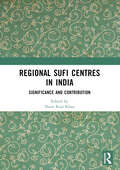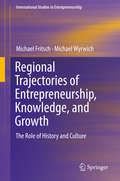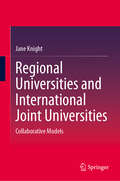- Table View
- List View
Reginald Rose and the Journey of 12 Angry Men
by Phil RosenzweigFinalist, 2021 Wall Award (Formerly the Theatre Library Association Award)The untold story behind one of America’s greatest dramasIn early 1957, a low-budget black-and-white movie opened across the United States. Consisting of little more than a dozen men arguing in a dingy room, it was a failure at the box office and soon faded from view.Today, 12 Angry Men is acclaimed as a movie classic, revered by the critics, beloved by the public, and widely performed as a stage play, touching audiences around the world. It is also a favorite of the legal profession for its portrayal of ordinary citizens reaching a just verdict and widely taught for its depiction of group dynamics and human relations. Few twentieth-century American dramatic works have had the acclaim and impact of 12 Angry Men.Reginald Rose and the Journey of “12 Angry Men” tells two stories: the life of a great writer and the journey of his most famous work, one that ultimately outshined its author. More than any writer in the Golden Age of Television, Reginald Rose took up vital social issues of the day—from racial prejudice to juvenile delinquency to civil liberties—and made them accessible to a wide audience. His 1960s series, The Defenders, was the finest drama of its age and set the standard for legal dramas. This book brings Reginald Rose’s long and successful career, its origins and accomplishments, into view at long last.By placing 12 Angry Men in its historical and social context—the rise of television, the blacklist, and the struggle for civil rights—author Phil Rosenzweig traces the story of this brilliant courtroom drama, beginning with the chance experience that inspired Rose, to its performance on CBS’s Westinghouse Studio One in 1954, to the feature film with Henry Fonda. The book describes Sidney Lumet’s casting, the sudden death of one actor, and the contribution of cinematographer Boris Kaufman. It explores the various drafts of the drama, with characters modified and scenes added and deleted, with Rose settling on the shattering climax only days before filming began.Drawing on extensive research and brimming with insight, this book casts new light on one of America’s great dramas—and about its author, a man of immense talent and courage.Author royalties will be donated equally to the Feerick Center for Social Justice at Fordham Law School and the Justice John Paul Stevens Jury Center at Chicago-Kent College of Law.
Regional Behaviour: Political Values and Economic Growth in European Regions (Routledge Revivals Ser.)
by Dimitrios C. ChristopoulosThis title was first published in 2001. In the framework of the EU, a number of policies have been devised for regions in order to facilitate their balanced economic development. The author argues that the focus on regional planners and their actions in academic literature has obscured the importance of regional elites in this process. The author compares Western Scotland and the west of Crete, focusing on the wider regional political and business elites within these regions, and attempting a comparison of elite attitudes within regions and between regions.
Regional Cities and City Regions in Rural Australia: A Long-Term Demographic Perspective (SpringerBriefs in Population Studies)
by Peter John Smailes Trevor Louis Griffin Neil Michael ArgentThe book examines the extent to which the sustained population growth of Australia’s heartland regional centres has come at the expense of demographic decline in their own hinterlands, and, ultimately, of their entire regions. It presents a longitudinal study, over the period 1947-2011, of the extensive functional regions centred on six rapidly growing non-metropolitan cities in south-eastern Australia, emphasising rapid change since 1981. The selected cities are dominantly service centres in either inland or remote coastal agricultural settings. The book shows how intensified age-specific migration and structural ageing arising from macro-economic reforms in the 1980s fundamentally changed the economic and demographic landscapes of the case study regions. It traces the demographic consequences of the change from a relative balance between central city, minor urban centres and dispersed rural population within each functional region in 1947, to one of extreme central city dominance by 2011, and examines the long-term implications of these changes for regional policy. The book constitutes the first in-depth longitudinal study over the entire post-WWII period of a varied group of Australian regional cities and their hinterlands, defined in terms of functional regions. It employs a novel set of indices which combine numerical and visual expression to measure the structural ageing process.
Regional Cooperation for Sustainable Food Security in South Asia
by Joseph George Nagesh KumarThis volume foregrounds the importance of regional cooperation in the context of food security challenges in South Asia. South Asia holds the key to global achievement of SDG targets of ending hunger and malnutrition – it accounts for nearly one-third of food-insecure people on the planet, with every third child suffering from stunting due to malnutrition. Similar food preferences, production systems, and the transboundary nature of agrarian ecosystems call for coordinated action by South Asian countries, complementing national actions dealing with food security challenges. In this volume, leading experts discuss the perspectives of key South Asian countries in leveraging regional cooperation for addressing food security challenges and reflect on the potential of cooperative actions in different areas. The book proposes a ten-point regional policy agenda covering cooperation for combatting climate change, regional trade liberalization, operationalization of regional food reserves, leveraging technology, sharing of good practices, regional institution building, coordinated positions in multilateral trade negotiations, addressing trans-boundary outbreak of livestock diseases, strengthening food safety standards, and the management of shared natural resources. A key volume on accomplishing SDGs in the South Asian context, this book will be of immense interest to policy makers, researchers, and development practitioners. It is also essential reading for scholars and researchers in the areas of development studies, South Asia studies, food security, environment and sustainability.
Regional Culture and Social Change: A Study of Miao-Inhabited Areas of Southwest China
by Yuhua MaThis book explores Shimenkan—a Miao-inhabited area in Weining County, China—and its rural society from a comprehensive and long-term perspective, drawing on research conducted by the author in the course of ten years. Located in the northwest of Weining County in Guizhou Province, Shimenkan is a multiethnic area, where, e.g., the Hans, Miaos, Yis, Huis, and Buyis live. Until the early twentieth century, it was a small mountain village; the introduction of Christianity led to significant cultural and social changes in this area. Focusing on China in the twentieth century, the book addresses the traditional culture of the Miao people, the popularity of Christianity in early modern times, the management and control by the government, the socialist reform in the period of the People’s Republic of China, and the changes following the reform and opening-up in recent years. Covering a century’s worth of history, it discusses the major historical events in Northeastern Yunnan and Northwestern Guizhou around Shimenkan and analyzes local social structures, religions, ideologies, customs, and ethnic psychologies, making it a valuable addition to the study of regional social history. The book draws on archives, literature reviews, and field surveys and pursues a multi-disciplinary approach combining history, anthropology, and other disciplines. It offers a valuable resource for researchers in history, religion, and ethnology, as well as readers interested in the spread of Christianity in the Miao-inhabited areas of southwestern China.
Regional Cultures, Economies, and Creativity: Innovating Through Place in Australia and Beyond (Routledge Advances in Sociology)
by Ariella Van Luyn Eduardo De La FuenteDrawing on Australian and comparative case studies, this volume reconceptualises non-metropolitan creative economies through the ‘qualities of place’. This book examines the agricultural and gastronomic cultures surrounding ‘native’ foods, coastal sculpture festivals, universities and regional communities, wine in regional Australia and Canada, the creative systems of the Hunter Valley, musicians in ‘outback’ settings, Fab Labs as alternatives to clusters, cinema and the cultivation of ‘authentic’ landscapes, and tensions between the ‘representational’ and ‘non-representational’ in the cultural economies of the Blue Mountains. What emerges is a picture of rural and regional places as more than the ‘other’ of metropolitan creative cities. Place itself is shown to embody affordances, unique institutional structures and the invisible threads that ‘hold communities together’. If, in the wake of the publication of Florida’s Rise of the Creative Class, creative industries models tended to emphasize ‘big cities’ and the spatial-cum-cultural imaginaries of the ‘Global North’, recent research and policy discourses – especially, in the Australian context – have paid greater attention to ‘small cities’, rural and remote creativity. This collection will be of interest to scholars, students and practitioners in creative industries, urban and regional studies, sociology, geography and cultural planning.
Regional Development in the Knowledge Economy (Regions and Cities)
by Philip Cooke Andrea PiccalugaInternational contributors provide the first examination of the growing subject of regional knowledge-economy development. Illustrated by data and 'stylized' accounts, the international contributors chart the evolution of knowledge economies, questioning the way in which they work and criticize accepted theories and inform how places can cope in the knowledge economy. Based in concept on Cooke's Knowledge Economies (Routledge, 2002), Regional Development in the Knowledge Economy is a well-grounded work exploring this increasingly important theme with relevance to innovation systems and related economic development literature.
Regional Drift: Remapping Africa’s Southern Oceans (Ocean and Island Studies)
by Pamila Gupta Caio Simões de AraújoThis book examines the Southern Indian Ocean corridor as a geographic, geological, and atmospheric space, taking a critical oceanic humanities approach while never losing sight of the land and water interface.Using a range of disciplinary approaches and materials, Gupta and de Araújo hydrate territorial and land-based imaginations of the Southern African region by conceptualizing its oceanicity as a fluid and more than human materiality, synthetic situation, and geopolitical nexus. With a diverse set of case studies, they explore a variety of conceptual framings and methodologies, including science-technology-society studies, tourism and heritage studies, history, and international relations (IRs) – among others. The contributors cover a complex and vast imaginative geography, cross-cutting Portuguese, German, and British colonial traces in the region, and exploring land, water, and submerged spaces, from coastal towns and bridges to islands and archipelagos.A fresh approach to thinking about Atlantic and Indian Ocean coastlines in a relational and scalar manner for scholars across a range of disciplines focussed on Southern Africa.
Regional Ecological Challenges for Peace in Africa, the Middle East, Latin America and Asia Pacific
by Úrsula Oswald Spring Hans Günter Brauch Serena Eréndira Serrano Oswald Juliet BennettThis book presents peer-reviewed texts from the International Peace Research Association's Ecology and Peace Commission: M. I. Abazie-Humphrey (Nigeria) reviews "Nigeria's Home-Grown DDR Programme"; C. Christian and H. Speight (USA) analyse "Water, Cooperation, and Peace in the Palestinian West Bank"; T. Galaviz (Mexico) discusses "The Peace Process Mediation Network between the Colombian Government and the April 19th Movement"; S. E. Serrano Oswald (Mexico) examines "Social Resilience and Intangible Cultural Heritage: Case Study in Mexico"; A. F. Rashid (Pakistan) and F. Feng (China) focus on "Community Perceptions of Ecological Disturbances Caused During Terrorists Invasion and Counter-insurgency Operations in Swat, Pakistan"; M. Yoshii (Japan) examines "Structure of Discrimination in Japan's Nuclear Export" and finally, S. Takemine (Japan) discusses "'Global Hibakusha' and the Invisible Victims of US Nuclear Testing in the Marshall Islands".
Regional Economic Communities and Integration in Southern Africa: Networks of Civil Society Organizations and Alternative Regionalism
by Inocent Moyo Christopher Changwe Nshimbi Leon Mwamba TshimpakaThis book examines regional integration in Africa, with a particular focus on the Southern African Development Community (SADC). It argues that the SADC’s pursuit of a rationalist and state-centric form of integration for Southern Africa is limited, as it overlooks the contributory role and efficacy of non-state actors, who are relegated to the periphery. The book demonstrates that civil society networks in Southern Africa constitute well-governed, self-organised entities that function just like formal regional arrangements driven by state actors and technocrats. The book amplifies this point by deploying New Institutionalism and the New Regionalism Approach to examine the role and efficacy of non-state actors in building regions from below. The book develops a unique typology that shows how Southern African regional civil society networks adopt strategies, norms and rules to establish an efficient form of alternative integration in the region. Based on a critical analysis of this self-organised regionalism, the book projects the reality that alternative regionalism driven by non-state actors is possible. This book expands the study of regionalism in the SADC, and makes a significant and innovative contribution to the study of contemporary regionalism.
Regional Economic Growth, SMEs and the Wider Europe (Routledge Revivals Ser.)
by Ayda Eraydin Bernard Fingleton Raffaele PaciThis title was first published in 2003. This work intends to make an important and interesting contribution to the wider debate on European regional development. It looks beyond the confines of the EU proper and combines interesting and relevant case studies from a broader pan-European perspective. Also, the approaches adopted are informed by a variety of theoretical positions. By addressing the changing roles of SMEs in different regions of Eastern Europe, readers should gain insights into the different dimensions of SME development and the link between SMEs and regional growth.
Regional Geography of Pakistan: A Study in Spatial Relations
by K. R. Dikshit Jutta K. DikshitThis book provides an integrated view of each of the four provinces of Pakistan, considered the four micro regions, owing to their relative internal homogeneity and distinctiveness from the adjacent regions. Each chapter of the book deals with a specific province, its physical environment, historic antecedents, contemporary social and economic organization and potential for future growth.This volume presents an in-depth study of Punjab, stressing on its transformation from a barren pastureland to rich, fertile agricultural land. The mineral-rich western provinces of Baluchistan and Khyber Pakhtunkhwa are subjects of focused study. The penultimate part of the book is a regional study of Sindh, evaluating the role of Indus in the economy of the province, and the contribution of Karachi as a financial and commercial center. It also outlines the planning and development of the federal capital, Islamabad, a symbol of pride and aspiration of the people of Pakistan.The book would be of immense academic value to students, researchers and teachers interested in area studies and regional planning. With a descriptive analysis of the country’s physical and social characteristics, it would also be a great source of information for professionals working in the tourism sector.
Regional Geography: Theory and Practice
by Roger MinshullThere is only one region--the surface of the earth--on which mankind finds its home. Yet, although much effort is devoted by geographers towards the study of this diversified environment as a whole, it has long seemed necessary, by the methods of aespecial' or aeregional geography', to study its component parts. And although nature abhors lines, geographers might appear to adore them, so busily do they engage themselves in delimiting on their maps allegedly significant areas called aeregions'. As a result, every student of geography in school, college of education and university has been taught, read books, and attempted to answer questions on regional geography.The problem of region in geographic thought--how it may be defined, how it has developed, and how it is applied--has been vigorously debated within the discipline. In this incisive examination of the types of regions and regional methods treated in modern geography, Roger Minshull analyzes in detail the concepts of formal, functional, and city regions in an attempt to clarify this vexing problem.In addition to sizes, shapes, boundaries, and organization, the phenomena that usually form the content of regions are delineated in an attempt to define the nature of regional geography. As some regions are seen to be products of geographers' minds, it is suggested that certain influences, especially the methods of mapping the separate topics that form the content of regions, have been exaggerated. Regionalism and possible alternatives to the regional method are treated, and a large section of the book is devoted to the idea of the compage, in which the geographer's choice of topics and method of working is much freer than in more traditional approaches.
Regional Governance and Policy-Making in South America (Governance, Development, and Social Inclusion in Latin America)
by Anne Marie HoffmannThis book analyzes Latin American regional integration with a novel conceptual approach grounded in extensive field research. Using the UNASUR (Unión de Naciones Suramericanas) as a case study, the author investigates the process of policy-making in regional public policy fields in South America. The project focuses on intergovernmental structures of regional organizations as an institutional framework for a variety of independent processes in regions. It also challenges the perspective of democratic states as unitary actors and seeks to analyze the factors which favor or obstruct regional processes in different policy-fields. This work will appeal to researchers, graduate students and anyone interested in Latin American politics and policy-making.
Regional Governance and the Politics of Housing in the San Francisco Bay Area (PLAC: Political Lessons from American Cities)
by Paul G. Lewis Nicholas J. MarantzThe San Francisco Bay Area is generally considered the most expensive regional housing market in the country. Because the region added jobs and residents at a faster rate than housing, rents and home prices escalated. Moreover, small municipalities, common in the most job-rich parts of the Bay Area, have strong political incentives to resist development of new multifamily housing. Regional Governance and the Politics of Housing in the San Francisco Bay Area explains how a decentralized, localistic structure of government shapes land-use politics in ways that exacerbate housing shortages and inequalities. The authors evaluate six potential reforms, arguing that targeted changes to local and regional institutions could generate durable improvements to the region’s housing opportunities. The main lesson from the case of the San Francisco Bay Area is the need to focus on governance when addressing the housing challenge. As the authors effectively illustrate, leaving a solution up to individual cities is unlikely to lead to increased housing supply.
Regional Innovation Evolution: An Emerging Economy Perspective (New Frontiers in Regional Science: Asian Perspectives #62)
by Chunbing Bao Qinyue ZhengThis book covers many aspects of innovation theory, evolutionary economics, economic geography, and simulation models. It is one of the first books to comprehensively and systematically focus on the evolution of regional innovation based on provincial experience in emerging economics, including stylized facts, theoretical explanation, and simulation. The book is devoted to a pioneering process-based regional innovation matrix used for classifying a regional innovation model, which is illustrated by real-world cases and data analyses. The topics addressed here include path dependency, lock-in, routines, variations, selectivity, regional gap, innovation progress, agglomeration, and innovation efficiency. The simulation methods describing the dynamics of regional innovation evaluation on economics are developed as well. The primary objective of this work is to provide a tractable and useful regional governance tool for researchers and policy makers in regional science, human geography, and related disciplines. The book is highly recommended to readers who seek more insight into the continuous development of China or regional development gaps.
Regional Innovation and Networks in Japan (International Perspectives in Geography #16)
by Yutaka YokuraThis book provides a novel perspective on networks and innovation in the field of economic geography and presents new findings through theoretical foundations and empirical analyses. The book focuses on various temporary systems in industrial agglomerations such as joint R&D, trade fairs, business workshops, and international conferences. Following the introduction, Chapter 2 considers the mechanism of the innovation process in which networks function as institutions. Chapter 3 and succeeding chapters conduct empirical research centered on statistical data analysis such as social network analysis and covariance structure analysis, and they determine the real-world situations through interview surveys of related stakeholders. Chapter 3 considers the structure and spatial patterns of R&D networks in Japan by making the structure visible and calculating network indices. Chapter 4 concentrates on local trade fairs held in industrial agglomerations and examines the development of various relationships between related participants. Chapters 5 and 6 shed light on institutional thickness in industrial agglomerations. Chapter 7 spotlights quantitative and metrical examinations of inter-organizational relationships in terms of knowledge flows based on company-level data regarding technological alliances and ownership relationships between global corporations. The studies featured in Chapters 6 and 7 serve to evaluate how Japan’s firms have adapted to radical changes under global competition.
Regional Integration, Development, and Governance in Mesoamerica
by Alina GamboaThis book provides an overview of governance and development in the Mesoamerican Region (MAR), the design and scope of the Plan Puebla Panamá (PPP), its relationship to pre-existing regional organisms and its transformation into Proyecto Mesoamérica. The PPP was introduced as a holistic project that would reverse the cycles of poverty in Mesoamerica. However, the plan incited huge opposition from many groups within Mesoamerica, and throughout its duration few of its objectives were met. The author analyses the plan and describes the regional setting and precursors, as well as the US policy towards the Mesoamerican countries. Using this approach with an analysis of governance in Mesoamerica, this monograph shows a more complete picture of why this ambitious development project did not reach its goals and draws applicable insights to other regions where governance is complex.
Regional Language Policies in France during World War II
by Aviv AmitDuring Germany's occupation of France in WWII, French regional languages became a way for people to assert their local identities. This book offers a detailed historical sociolinguistic analysis of the various language policies applied in France's regions (Brittany, Southern France, Corsica and Alsace) before, during and after WWII.
Regional Organizations and Social Policy in Europe and Latin America: A Space for Social Citizenship? (Development, Justice And Citizenship)
by Andrea C. Bianculli Andrea Ribeiro HoffmannThe contributors assess to what extent regional organizations in Europe and Latin America provide a space for the regulation and provision of social policies in the area of social protection, higher education and health. They analyse the impact of regional organizations on social citizenship following political struggle and contestation.
Regional Policy in Britain: The North South Divide
by Paul N. BalchinOriginally published in 1990, this book examines the extent to which the ‘north-south divide’ in the UK has been a reality in recent years. It also reveals the degree to which the gap between the two parts of Britain has worsened. An issue of enduring relevance, particularly given the political drive to ‘level up’ the regions, the book focusses particularly on the 1980s, a period when regional assistance became a victim of both monetarism and free market ideology. The book reviews legislation and considers whether regional policy has been effective and consistent. To widen the debate, the author questions some common assumptions about regional imbalance, and argues that intraregional disparities and the plight of Inner London were causes of concern no less serious than the problem of the north-south imbalance.
Regional Policy: A European Approach (Routledge Revivals)
by Norbert VanhoveFirst published in 1999, this volume combines the theory and practice of regional economic policy in Europe. Six main topics are covered as follows: theory of regional economic development and policy; Regional policy at the national level; Regional disparities in the EU – past and present; Impact of the integration on regions; Regional policy in the EU 1975-1999; The structural funds 2000-2006 and openness to Eastern European countries. The book also includes an up-to-date bibliography on the topic covered.
Regional Sufi Centres in India: Significance and Contribution
by Nasir Raza KhanRegional Sufi Centres in India: Significance and Contribution sets out to explore and understand the hundreds of years old multi-religious sect of India, "Sufism," which advocates humane and global outlook for entire mankind and regards humanity as a brotherhood. Sufism came to India from its Arabic Turkic and Persian homes, instead of remaining confined to palaces and mosques. It spread out to all over India establishing regional Centres and Dargahs often known by the surnames of the families which sustained it, like Khanqah-e-Niazia, in Bareilly (UP), Khanqah Gesu Daraz in Gulbarga, and Firdausi in Bihar. The authors of this volume discuss some of the regional Sufi Centres in India and their contribution in the social emancipation of the society. Print edition not for sale in South Asia (India, Sri Lanka, Nepal, Bangladesh, Pakistan and Bhutan)
Regional Trajectories of Entrepreneurship, Knowledge, and Growth: The Role of History and Culture (International Studies in Entrepreneurship #40)
by Michael Fritsch Michael WyrwichThis book offers a dynamic perspective on regional entrepreneurship, knowledge, innovation and economic growth, with a particular focus on the role that history and culture play. The authors provide comprehensive empirical analyses offering unique insights into the spatial patterns of long-term differences of regional self-employment, new business formation, cultures of entrepreneurship, innovation activities, and development. Policy implications from the analyses and a discussion of important avenues for future research complete this unique book combining history, culture, and entrepreneurship.This is a superb book with an original, historical take on entrepreneurship and regional development. It is a landmark study on Germany showing that regional levels of entrepreneurship are persistent and resilient, despite many disruptive shocks.Ron Boschma, Utrecht University, The Netherlands, and Stavanger University, NorwayThis book presents the distilled wisdom of two leading authorities on the link between entrepreneurship and economic prosperity at a regional level. Although its prime empirical focus is on Germany there are clear lessons for scholars and policy-makers in all high-income countries.David J Storey, University of Sussex, UK
Regional Universities and International Joint Universities: Collaborative Models
by Jane KnightThis book offers an in-depth analysis of two collaborative models of international higher education institutions: international joint universities (IJUs) and supranational regional universities (RUs). They are based on close partnerships among countries and institutions and thus differ from the single state university model as well as international branch campuses or franchise universities. Key features of these institutions are examined through the use of conceptual frameworks and ten in-depth case studies from all regions of the world. Distinguishing characteristics such as shared governance and management practices; collaborative academic programs and the development of joint laboratories, research networks, and centers of excellence are analyzed. A study of the driving rationales for IJUs and RUs reveals commonalities and stark differences. While international joint universities are commonly single campus institutions, regional universities can be single, multiple campus or virtual. IJUs and RUs are understudied phenomena as more attention and research is focused on the rise of international branch campuses. Academic leaders, policy makers, higher education scholars and students will benefit from the analysis of the key features, rationales and benefits of international collaborative university models and how they can contribute to 1) providing increased and diversified access to education, 2) promote regional identity and facilitate bilateral and regional collaboration for education, research and innovation; 3) contribute to stronger regional and international relations between countries through knowledge diplomacy; and 4) address contemporary global and regional issues. At the same time, it is important to acknowledge potential risks and uncertainties related to quality assurance, qualification recognition, financial stability, research integrity, knowledge security, and sustainability that can be linked to collaborative models of international higher education institutions.
